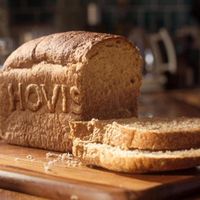In a move poised to reshape the British bread market, Associated British Foods (ABF), owner of the Kingsmill brand, has agreed in principle to acquire rival bakery Hovis for a reported sum exceeding £70 million. The deal, announced on August 15, 2025, is subject to regulatory approval by the Competition and Markets Authority (CMA) and, if finalized, would unite two of the nation’s largest bread brands under one corporate roof. This merger could see the combined business leapfrog Warburtons to become the UK’s biggest bread brand, commanding a projected 41% market share compared to Warburtons’ 34%, according to analysts cited by Scottish Grocer and This is Money.
The agreement follows months of speculation and comes after ABF’s strategic review of its loss-making Allied Bakeries division—home to Kingsmill, Allinson’s, and Sunblest. Both Hovis and Allied Bakeries have been under economic pressure, grappling with rising costs of raw materials, energy, and labor, as well as shifting consumer preferences. According to Share Talk, Hovis reported a near 9% drop in sales to £447 million in the year ending September 28, 2024, with pre-tax losses widening to £4.7 million. Allied Bakeries, meanwhile, posted estimated annual losses of £30 million despite sales of about £400 million.
ABF’s chief executive, George Weston, sounded an optimistic note about the merger’s prospects. “This transaction will create a UK bakeries business that is both profitable and sustainable over the long term. Supporting the Hovis and Kingsmill brands with well-invested and efficient operations will also enable innovation and growth. This solution will create value for shareholders, provide greater choice for consumers and increase efficiencies for customers,” Weston told investors, as reported by Share Talk and Daily Mail.
The merger is structured to combine the production and distribution activities of Hovis with ABF’s Allied Bakeries, a move that ABF says will yield significant cost synergies and efficiencies. The company estimates that the deal could save £55 million between the two businesses, a much-needed boost as both have struggled to turn a profit in recent years. “The combined business will be better placed to compete effectively and to establish a stable platform for product innovation in the segments of the UK bakery category that are growing as a result of changing consumer tastes and needs,” ABF said in a statement to investors, as reported by Scottish Grocer and This is Money.
The UK bread market has been in flux, with sales of basic pre-packaged bread declining as consumers turn to specialty breads and embrace high-protein, low-carbohydrate diets. This shift has left established brands like Hovis and Kingsmill scrambling to adapt. ABF hopes the merger will provide the scale and resources necessary to innovate and expand into these growing segments, promising new product ranges and improvements to existing lines.
Hovis, a brand with roots stretching back to 1890, was acquired by private equity firm Endless in 2020 from Premier Foods, which owns the Mr Kipling brand. Endless had attempted to revive Hovis’s fortunes, but the brand continued to lose ground to Warburtons, the current market leader. The proposed deal with ABF marks another chapter in Hovis’s long history and could be the lifeline it needs to regain relevance in a rapidly changing marketplace.
While the potential benefits of the merger are clear—cost savings, operational efficiencies, and a stronger platform for innovation—there are also significant hurdles to clear. The deal is expected to draw close scrutiny from the Competition and Markets Authority, given the combined market share of the two brands. The CMA will need to determine whether sufficient competition remains from supermarket own-label breads and other rivals, and whether the merger could lead to higher prices or reduced choice for consumers. As Russ Mould, investment director at AJ Bell, pointed out in This is Money, “Bread is a staple for most households and there might be some perceived risk that the deal would leave consumers out of pocket.”
The specter of job cuts also looms over the merger, though ABF has not provided details on potential redundancies. Mergers of this scale often lead to consolidation of operations, which can result in workforce reductions as overlapping roles are eliminated. According to Companies House filings cited by Scottish Grocer, any merger is unlikely to be concluded before September 2026, meaning employees and stakeholders face a period of uncertainty as the regulatory process unfolds.
For ABF, the deal is part of a broader effort to shore up its diversified business portfolio, which also includes well-known brands like Primark, Ryvita, and Twinings. The company has faced challenges in other areas, including its discount clothing chain Primark and its sugar division. As Mould observed, “The company, and the controlling Weston family, continue to extol the virtues of diversification but for this to be sustainable then all parts of the group need to be in reasonable shape – this deal could help put the Allied Bakeries division in a better place.”
The merger also reflects the broader challenges facing the UK’s packaged food sector, where rising costs and changing consumer habits have forced companies to rethink their strategies. Bread, once a reliable staple, has become a more competitive and less predictable business. ABF’s bet is that by combining two struggling but iconic brands, it can achieve the scale and agility needed to thrive in this new environment.
If the CMA gives its blessing, the new Hovis-Kingsmill entity will not only be the largest bread brand in the UK but could also serve as a testing ground for new products and approaches tailored to modern consumer demands. ABF has pledged to invest in both brands, supporting product innovation and operational improvements that it hopes will restore profitability to its bakery operations.
As the industry awaits the outcome of the regulatory review, all eyes will be on how ABF navigates the challenges of integration, competition, and shifting market dynamics. The stakes are high—not just for the company and its shareholders, but for the millions of British households for whom bread is a daily essential. Whether this ambitious merger delivers on its promise of value, choice, and innovation remains to be seen, but one thing is certain: the UK bread aisle is about to get a lot more interesting.


